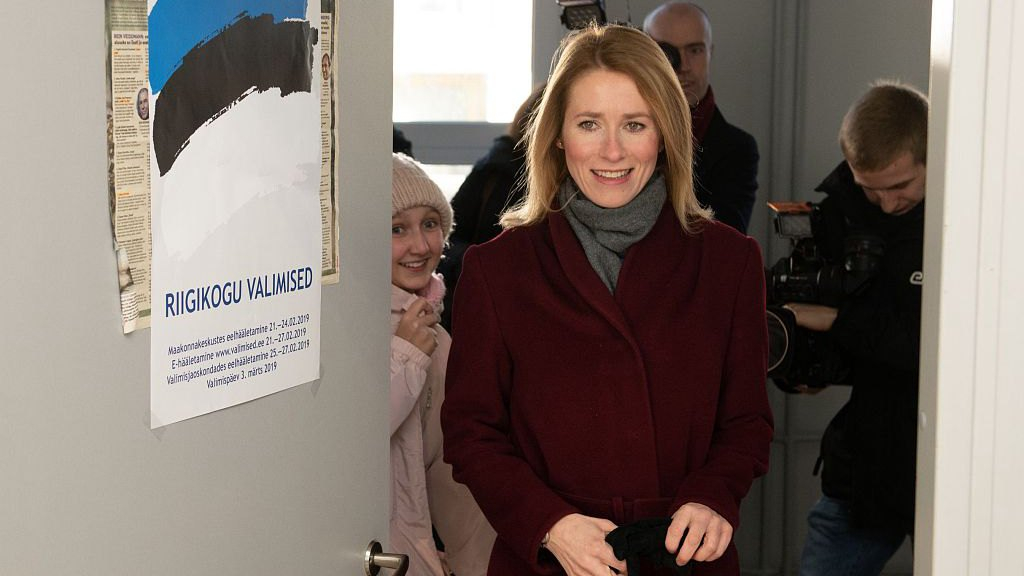
Europe
10:42, 04-Mar-2019
Estonian center-right opposition wins elections
CGTN

Estonia's opposition center-right Reform party pulled off a surprise win over Prime Minister Juri Ratas' governing center-left Center party in Sunday's parliamentary elections.
The results put Reform leader Kaja Kallas in the pole position to become the country's first female prime minister, although she will have to tackle difficult negotiations to form a governing coalition.
Most opinion polls since late last year had put Center in front, although recent surveys indicated a tight race, with some suggesting pro-business Reform could pull ahead.

Estonian Prime Minister Juri Ratas of the centrist Center party campaigns in Tallinn, March 3, 2019. /VCG Photo
Estonian Prime Minister Juri Ratas of the centrist Center party campaigns in Tallinn, March 3, 2019. /VCG Photo
"I have to admit I prepared two speeches," Kallas said near midnight speaking to a cheering crowd of her supporters. "Now starts the real work to form the government and start to govern this country more intelligently."
Reform won 28.8 percent of the vote, giving it 34 seats in the new 101-seat parliament. Center stood at 23.1 percent and the far-right EKRE at 17.8 percent, more than doubling its vote from the previous election, said the State Electoral Office.
Kallas, a 41-year-old lawyer and former European Parliament member, took over as Reform leader less than a year ago. The party's founders include her father, Siim Kallas, a former Estonian prime minister and EU commissioner.
Estonia's president is due to nominate the candidate for prime minister in coming days, after which the nominee will begin negotiations to form a coalition as all parties fell well short of winning a majority.
Kallas looks likely to face a difficult task in hammering out a coalition government in the parliament where all other parties have ruled out governing with the Eurosceptic nationalists of EKRE.

Electoral officials count ballots at a polling station during Estonia's general election in Tallinn, March 3, 2019. /VCG Photo
Electoral officials count ballots at a polling station during Estonia's general election in Tallinn, March 3, 2019. /VCG Photo
EKRE's success could lead to a coalition of Estonia's main rivals – Ratas' traditionally pro-Russian Center and pro-Western Reform – which have not governed together since 2003.
"Now it's my duty and goal to work, for our party will be in the coalition," Ratas told Reuters, while admitting defeat.
While both are fiscally conservative, Center has been seeking to make the Baltic country's tax system increasingly progressive along the lines of richer neighbors such as Finland, while Reform has championed business-friendly reforms and the flat tax that was long the hallmark of the Estonian economy.
(Cover image: Kaja Kallas, leader of the Reform party arrives to vote in a polling station during Estonia's general election in Tallinn, March 3, 2019. /VCG Photo)
Source(s): Reuters

SITEMAP
Copyright © 2018 CGTN. Beijing ICP prepared NO.16065310-3
Copyright © 2018 CGTN. Beijing ICP prepared NO.16065310-3